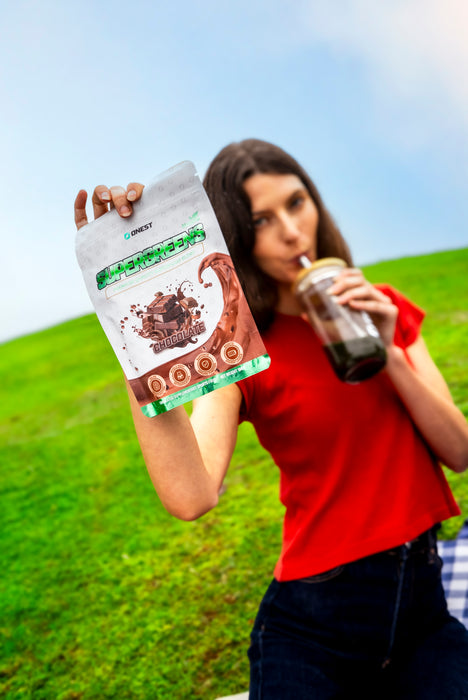FEEL COLD, TIRED, AND GAINING WEIGHT? YOUR METABOLISM MAY BE SLOWING DOWN
Are you gaining weight even as you watch your calories and exercise?
Do you find it difficult to budge the bulge?
Have you reached middle age and wondered if your metabolism might be slowing down as the years speed up? Could this be a cause of the unwanted changes in your body?
Your metabolism is “the sum of the biochemical processes that create or consume energy.” It is quite literally the source of life’s energy. Without metabolic processes, we would fail to live. When it slows, so do we.
With this in mind, let’s explore six signs that may indicate a slowing metabolism.
The exhaustion of daily fatigue
Do you feel tired even after a good night’s sleep?
Do you depend on strong coffee to prepare for and pep you up throughout your days?
A sluggish metabolism could be responsible.
For example, hypothyroidism — an under-active thyroid gland — results when too little thyroid hormone is produced and released into the body. This condition slows everything other than the aging process.
This slowed metabolism (called a hypo-metabolic state) is tiring! There’s not enough energy to keep up with your needs. So, your biology slows down to maintain the balance. To, in essence, stop you from running out of fuel.
Enter fatigue.
The dread of unexplained weight gain
Are you eating clean and staying active but still packing on pounds?
Unexplained weight gain is another sign of a slowed metabolism.
When your metabolism reduces speed, your ability to burn calories for energy also decreases.
Resting energy expenditure — the number of calories you consume at rest — diminishes. Even if you eat the same calories as before, a slower metabolic rate means you may struggle to burn them off as efficiently.
The result?
Unspent calories, which the body stores as fat.
Over time, this can lead to weight gain that seems inexplicable. You’re being careful, and you’re gaining weight.
While it’s not this simple, we can think of “calories in, calories out” as a balancing act. That’s why energy intake (through food and drink) and energy expenditure (through essential bodily functions and physical activity) are known as energy balance.
When metabolism is fast, it’s easier to maintain or lose weight because the body burns through energy more quickly. But when metabolism slows, the reverse is true. The scale can creep upwards, even when you feel you’re doing everything right.
Just like fatigue, this can be a frustrating symptom of a slowed metabolic rate. It’s also more common in hypothyroidism.
A constant chill in your bones
Do you feel cold when others don’t?
This could be a sign of a slower metabolism.
The process of metabolism generates heat in our bodies. This heat helps maintain normal body temperature even in a cold environment. So, when your metabolism slows down, less heat is produced. That can put a shiver in your spine, making you feel colder than usual.
Insulin resistance and diabetes
Insulin resistance (IR) is when the body’s cells become less responsive — yes, more resistant — to the hormone insulin. Insulin is crucial in regulating blood sugar levels by helping move glucose from the bloodstream and into the cells.
In insulin resistance, this signal is weakened. Cells don’t respond as they should. The body produces more insulin to compensate, which can lead to higher insulin levels in the blood. And the cycle continues.
Imagine insulin as a key and that your body’s cells have locked doors. Insulin (the key) fits into a specific spot on each cell (the lock) to open the door and allow glucose (fuel) inside. When insulin resistance strikes, it’s as if the locks have started to rust. Even though you’re using the correct key, the locks are more challenging to turn. Opening each door requires more effort.
As a result, more keys (insulin) are needed to open the same number of doors to allow glucose inside. To move the excess sugar from the bloodstream, where its stickiness causes chaos, and into the relative safety of the cells. Increased insulin and an imbalance in blood sugar levels result.
A study found that low basal metabolic rate is, as its title suggests, “a risk factor for development of insulin resistance and type 2 diabetes.”
Not only can lifestyle and age contribute to the development of IR and diabetes, but low metabolism may, too.
What signs and symptoms can rear their ugly heads in IR and diabetes?
— Frequent urination
— Excessive thirst
— Fatigue
— Increased hunger
— Weight gain or weight loss
— Areas of darkened, velvety skin (called acanthosis nigricans)
— Skin tags
A depressed mood
Do you feel hopeless or numb?
Does joy seem only a distant memory?
Poor metabolism affects mental health and mood. Yes, including depression.
Research published in Frontiers in Aging Neuroscience noted that “depressive mood is linearly associated with metabolic dysfunction, glucose dysmetabolism, and lipid imbalance.”
In essence, there is a direct relationship between feeling depressed and having issues with your metabolism. As metabolic problems increase, so does the risk of depressive symptoms. The reverse is also true. Improving your metabolism may help you feel happier, too.
Persistent problems sleeping
Do you toss and turn at night?
Or sacrifice sleep to get more done?
In the not-so-distant past, nine hours of shut-eye was standard. We now average a dismal 6.8 hours. You’re in good company if you sleep under six hours per night. That’s the amount 30% of us manage to achieve.
This is problematic as the links between poor sleep and metabolic function are now established.
According to the article Sleep and Metabolism: An Overview, research has “clearly shown that sleep deprivation can alter the glucose metabolism and hormones involved in regulating metabolism.”
Prioritizing your slumber, then, is vital.
Ready to learn how to naturally and effectively improve your sleep?
We share evidence-backed, doable steps in 6 Ways to Improve Your Quality of Sleep.
Each of these issues raises a vital question…
How can you boost your metabolism?
A natural, simple, and science-backed way to support a healthier metabolism exists. It’s called HyperBurn.
With ingredients that power up your energy levels and fat-burning mojo — including Capsimax, bitter orange extract, Huperzine A 1%, caffeine anhydrous, dicaffeine malate, and BioPerine™ — this cutting-edge product is formulated to get results!
As Kylie L. said, “I have been using HyperBurn for a week and have noticed more energy and my weight is shifting. Would recommend this product.”
Grab your HyperBurn today to begin seeing results soon!






